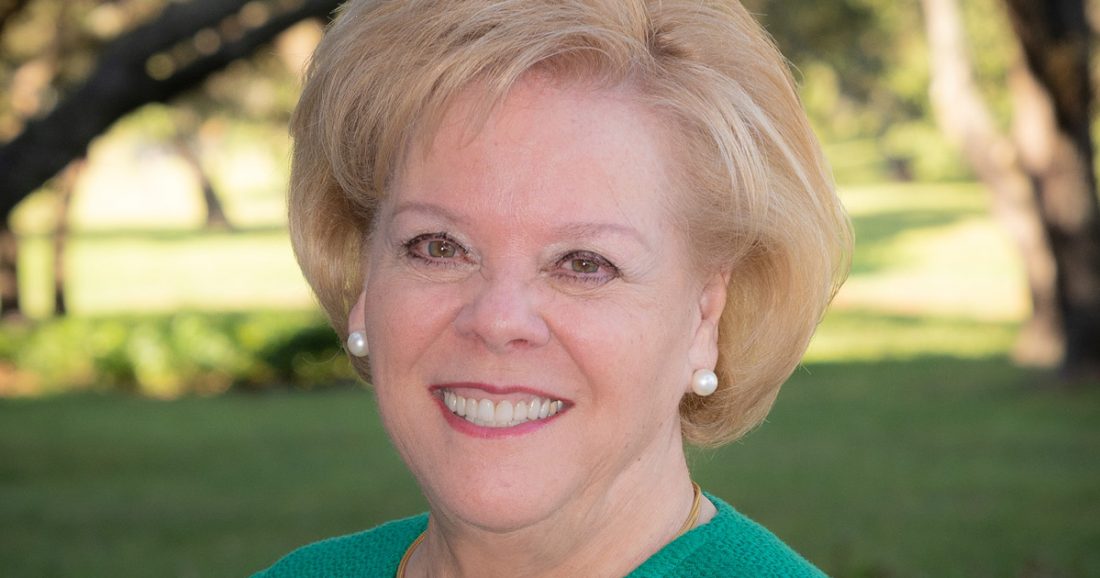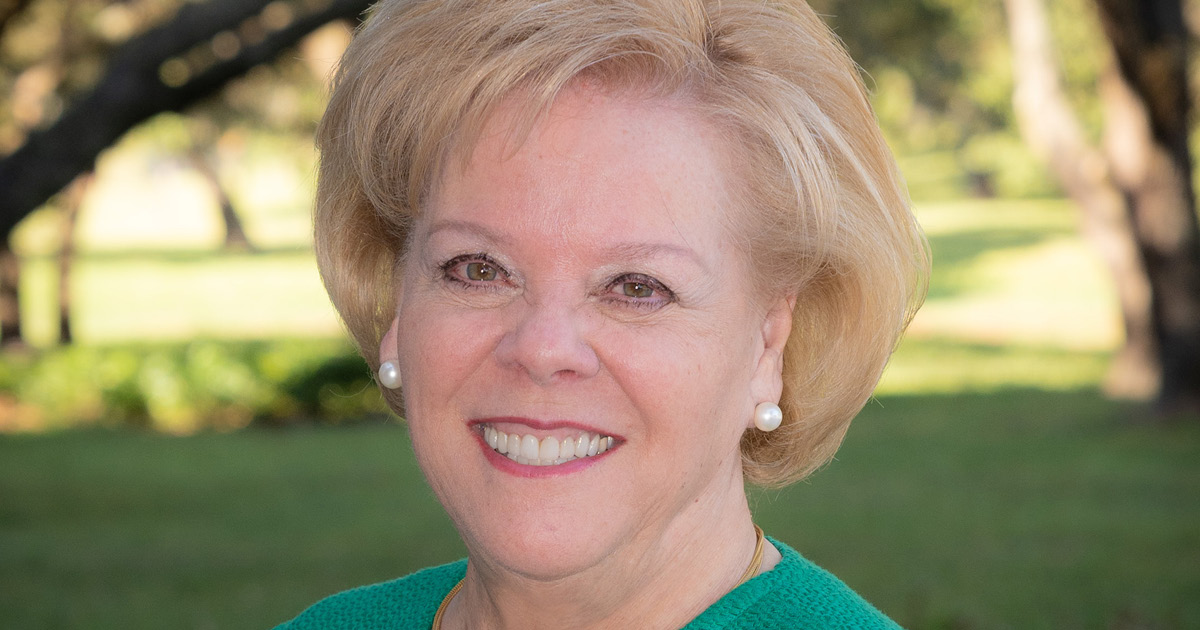Rhea Law’s association with the University of South Florida (USF) has been a long and fruitful one. Over more than 40 years, Law has progressed from student to employee to president, with a variety of stops in between.
“I loved every single minute of it,” she tells The CEO Magazine. “I love the learning experience, being around all the different areas of knowledge.”
Law’s time with the university has provided exactly that. She earned an undergraduate degree in management from USF, putting herself through school while working as a university research project administrator for the Office of Sponsored Research. She later went on to attend law school at Stetson University.
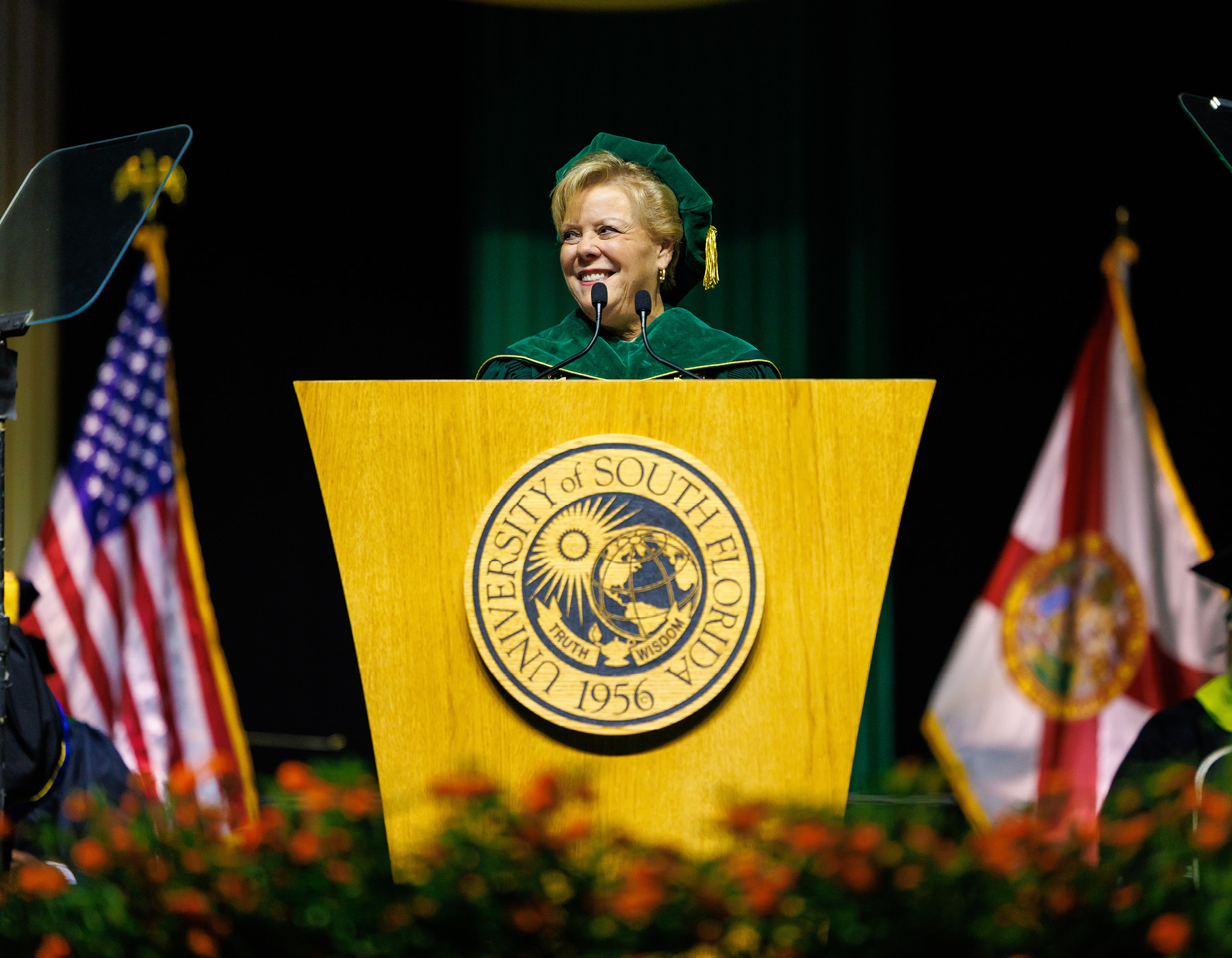
“I’d say we’re gritty. We’re a roll-up-your-sleeves, let’s-get-it-done university.”
After becoming an attorney, Law worked for a variety of firms before returning to serve on USF’s research foundation.
“That was right up my alley after being in research for four years,” she says. “Then the State of Florida created boards of trustees for each of the individual state university systems, and I chaired the inaugural board.”
During her years on the board, Law volunteered for various pursuits across USF. “I was a donor, I was a supporter, and I chaired CAMLS, our healthcare simulation facility in Tampa,” she says.
In collaboration with
Tampa Electric

In 2021, USF asked Law to act as interim President. What was supposed to be a six-month tenure became three-and-a-half years.
“If you add it all up, it’s over 40 years,” she says.
But now, that time is coming to an end. Law has announced her intention to step down from the role of USF President after a tenure she regards as bold and successful.
“When they first called and asked me, I thought it was a very exciting opportunity, but I wasn’t sure that the people in my life would agree, particularly my husband,” she recalls.
“When I asked him what he thought, he said, ‘You’ve been preparing for this your entire life. You just didn’t know it.’ That convinced me it was the right move, and there are no regrets.
“It’s one of the most fulfilling things I’ve ever done.”
Academic excellence
Despite USF’s relatively young age (the university is just shy of 70), Law says the school has achieved the pinnacle of academic achievement.
“We are a preeminent state institution, one of four. We are a Research-1 institution, one of 143 across the United States. We have achieved things faster than most other universities the same age, and we do that because I’d say, we’re gritty. We’re a roll-up-your-sleeves, let’s-get-it-done university,” she says.
“We’re part of the community; we’re focused on our students and our faculty and on enhancing knowledge. We solve problems.”
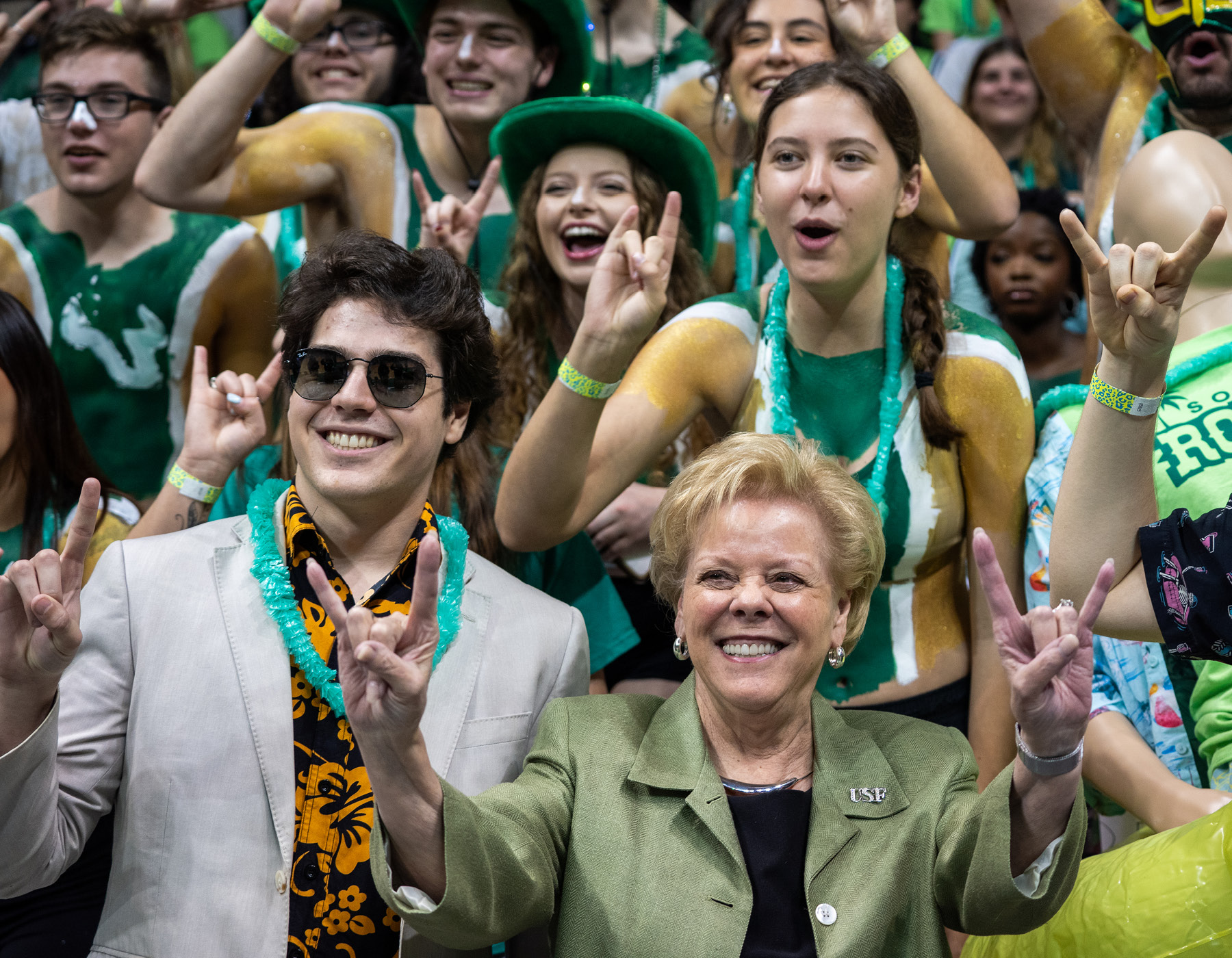
“We’re part of the community; we’re focused on our students and our faculty and on enhancing knowledge. We solve problems.”
One of the academic areas USF is known for is health sciences. Together with partner Tampa General Hospital, USF is one of the largest academic medical centers in Florida, and the USF Health Morsani College of Medicine is the top-ranked medical school in Florida, according to U.S. News & World Report.
“We take on the hardest cases. We bring our expertise to bear on all of that, and we’re a benefit to the community from a healthcare perspective and from a global and national security perspective,” Law says.
Another key area is AI and cybersecurity. Last year, USF announced its intention to create Florida’s first college focused on AI, cybersecurity and computing, which is among the first in the nation.
A historic US$40 million gift from Arnie and Lauren Bellini has established USF’s Bellini College of Artificial Intelligence, Cybersecurity and Computing, which opens in fall 2025. There is a pressing need in these fields, as over 40 percent of cybersecurity organizations report difficulties in finding qualified talent, and Tampa Bay is home to a growing number of prominent cybersecurity and technology companies.
Preparing for the future
USF has also partnered with a variety of local industries and businesses, including TECO Energy, to advance knowledge and create places for students to prepare for careers they’re interested in.
“They can actually go to these businesses already aligned with USF, be with them while they’re studying, then come home and hopefully have a job with them,” Law says. “At our last meeting, we had businesses fighting over individual students they wanted to hire, which I thought was fantastic.”
In TECO Energy’s case, the company has worked with USF to accelerate progress toward its reduced carbon goals.
“We help the business achieve its own goals, which in turn helps us educate our students and prepare them for the future,” she adds.
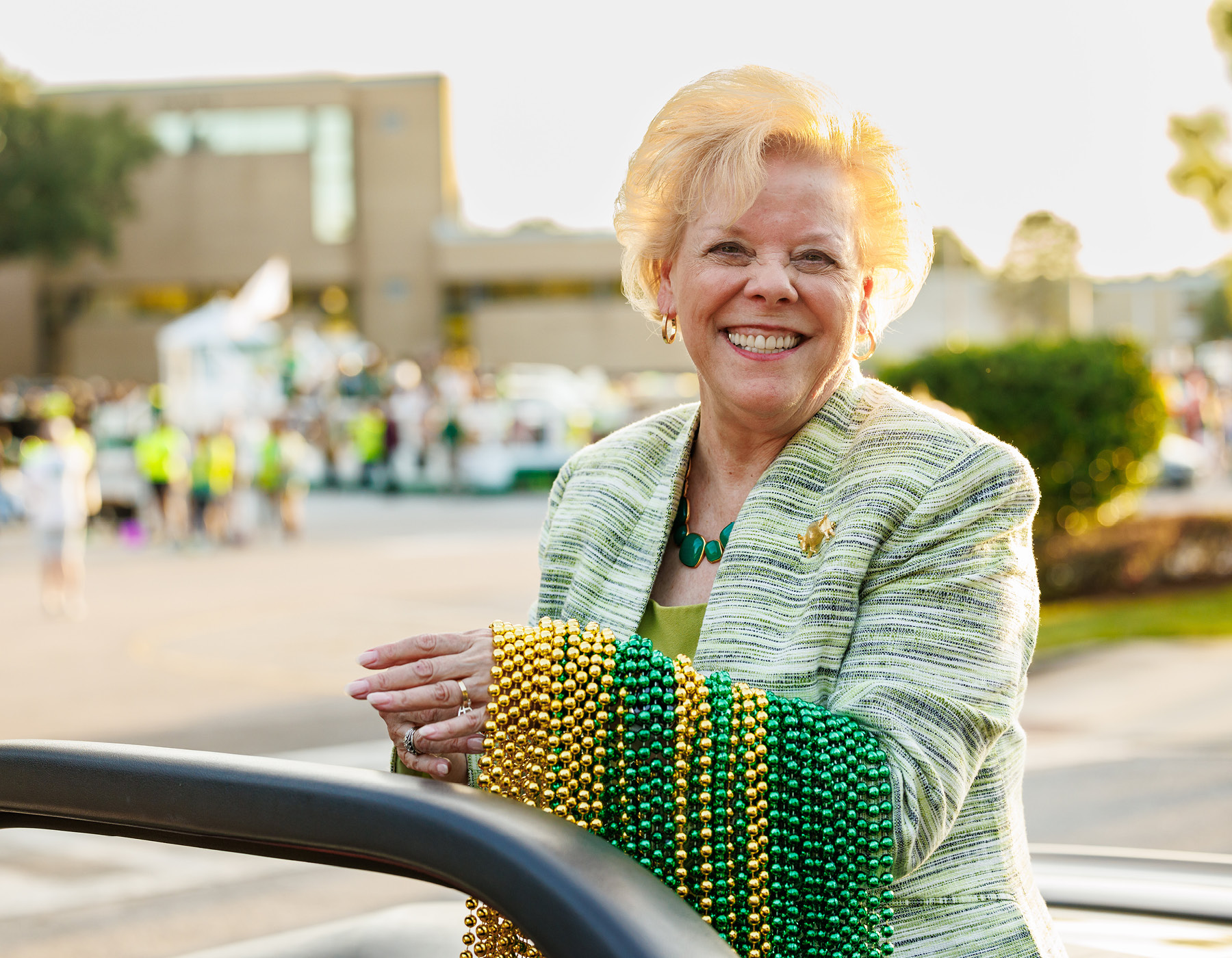
“Education is not a silo; it’s a part of the community.”
It’s partnerships such as these that Law believes will drive the university to greater heights long after her successor is in place.
“Education is not a silo, it’s a part of the community. As a matter of fact, it’s one of the foundations of a strong and thriving society,” she says. “So if we don’t link arms with all of those around us, we’re not doing our job.”
As Law herself prepares to leave, she does so knowing USF will continue to provide quality education.
“One thing we’re really know for at USF is our continuing education,” she says. “We’re committed to promoting lifelong learning because technology is changing so quickly. You cannot learn everything you need to know today because it will change tomorrow. So you prepare yourself for success by upskilling and being up-to-date. USF is always a place they can come to get that.”

